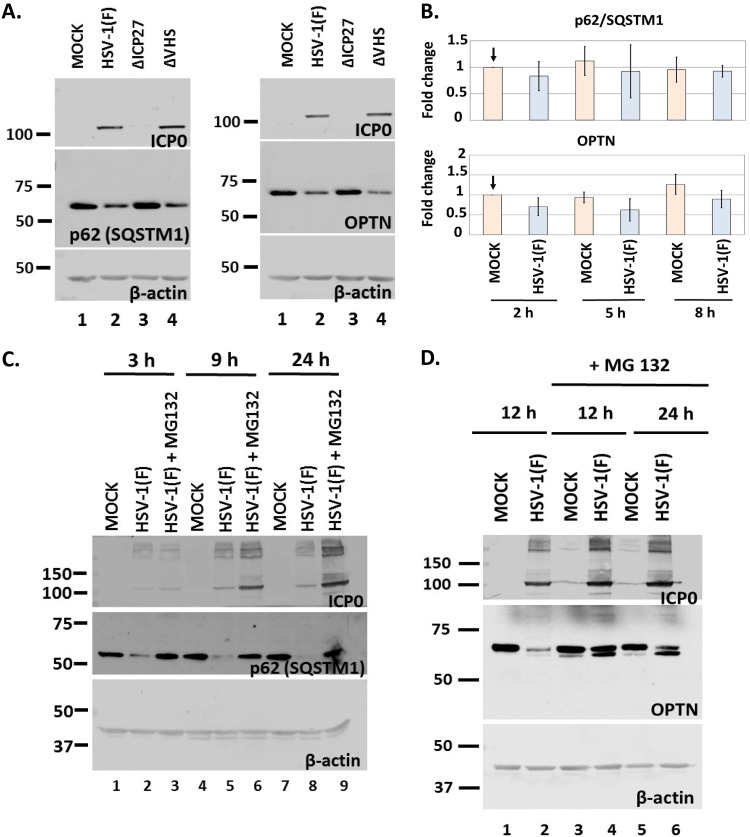FIG 5.
Down-modulation of p62 and OPTN protein during infection occurs at the level of protein and not of transcript. (A) HEL cells were infected with HSV-1(F) or the ΔICP27 or ΔVHS mutant (3 PFU/cell), and whole-cell lysates were collected at 9 h postinfection. Equal amounts of protein were analyzed by immunoblot analysis using antibodies against p62, OPTN, or ICP0. β-Actin served as a loading control. (B) HEL cells were not infected or infected with HSV-1(F) (5 PFU/cell), and cells were harvested at 2, 5, and 8 h postinfection. OPTN and p62 transcript levels were determined in the total amount of RNA by qPCR analysis using probes against p62 or OPTN transcripts. Primers against 18S rRNA served as a normalization control. Results from three independent assays do not demonstrate statistically significant differences. (C) HEL cells were infected with HSV-1(F) (3 PFU/cell) and were left untreated or were treated with MG132 (10 μM) at 1 h postinfection. Whole-cell lysates were collected at 3, 9, and 24 h postinfection, and equal amounts of protein were analyzed by immunoblot analysis, using antibodies against p62 and ICP0, which served as both a control for infection and a positive control for the effect of MG132 on ICP0 protein accumulation. β-Actin served as a loading control. (D) HEL cells were infected with HSV-1(F) (3 PFU/cell) and were left untreated or treated with MG132 as described for panel C. Whole-cell lysates were collected at 12 and 24 h postinfection, and protein analysis was done as described for panel C. All experiments were repeated at least three independent times, and representative Western blots are depicted.

